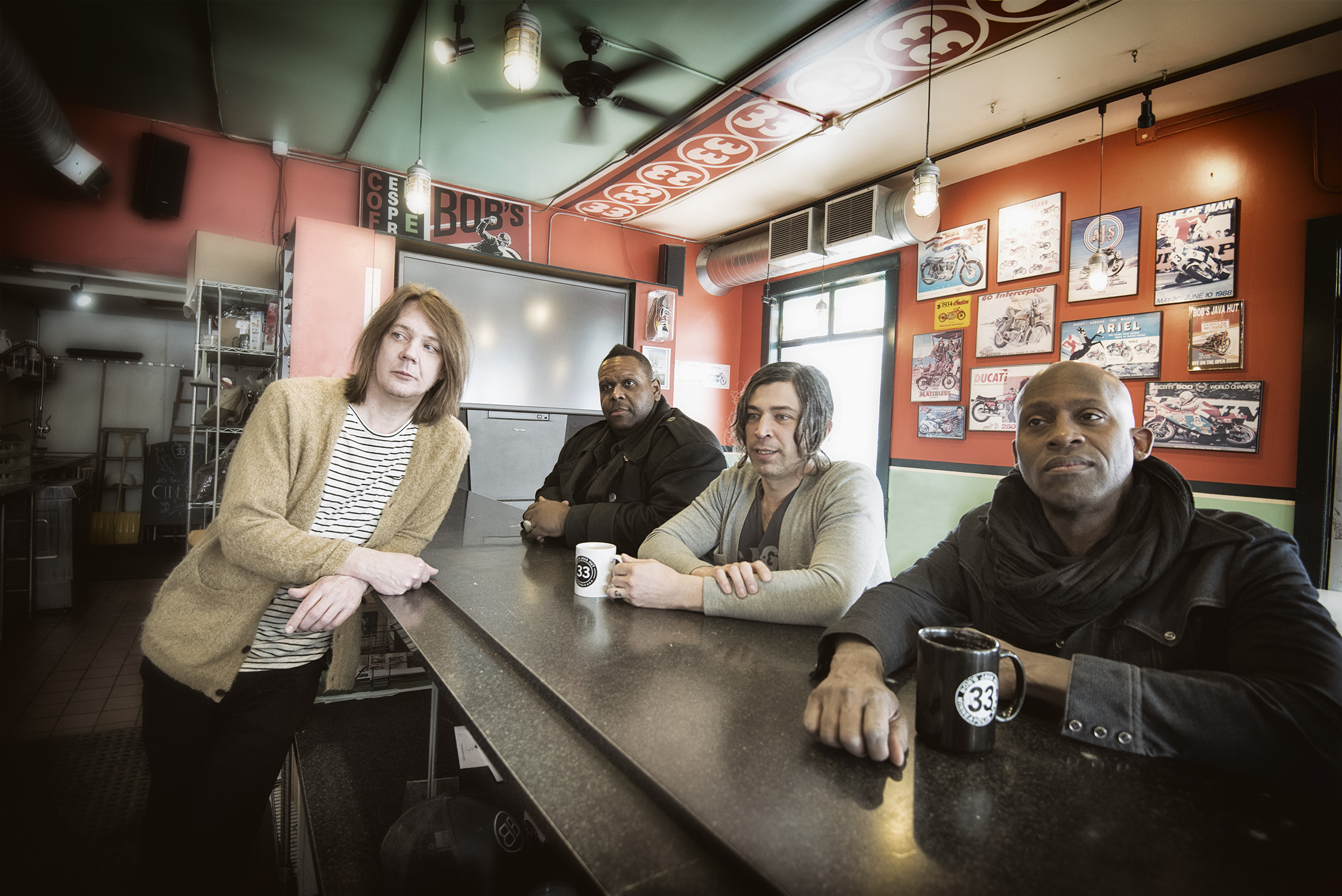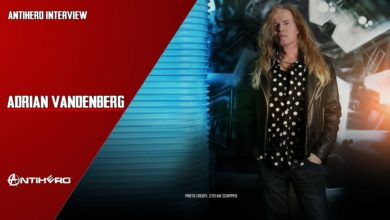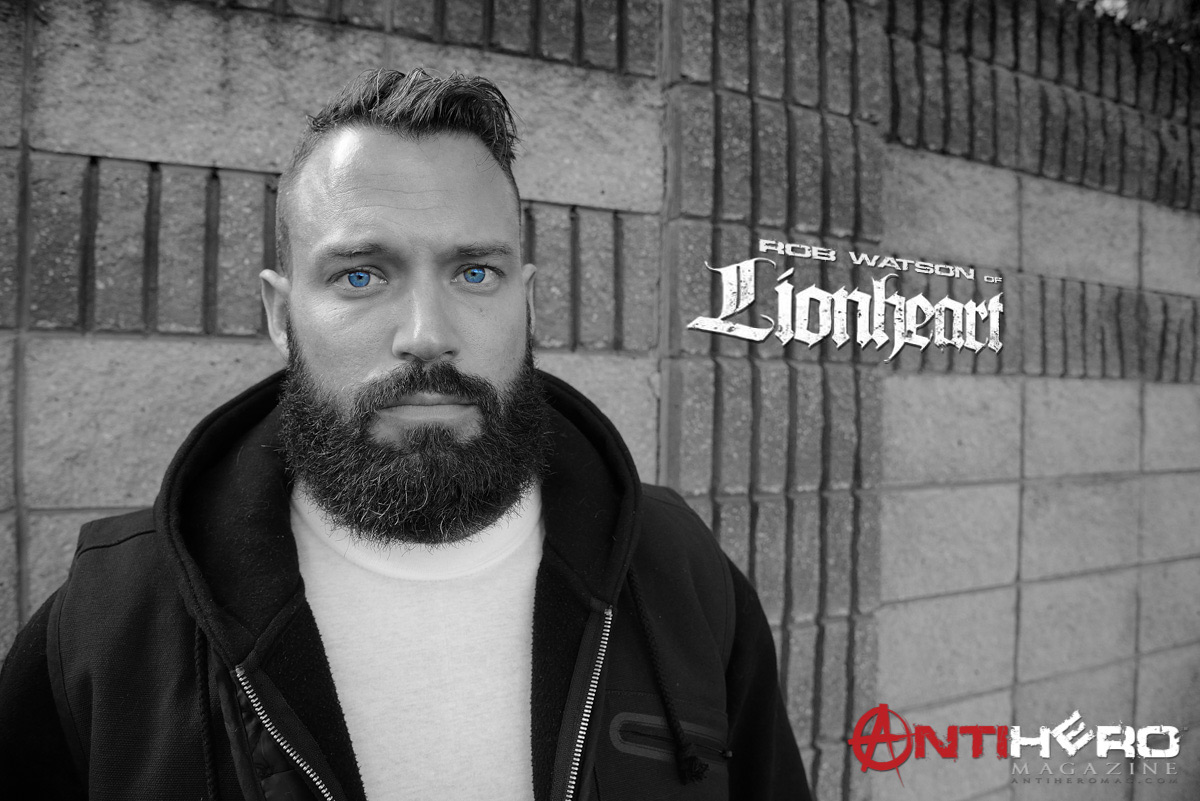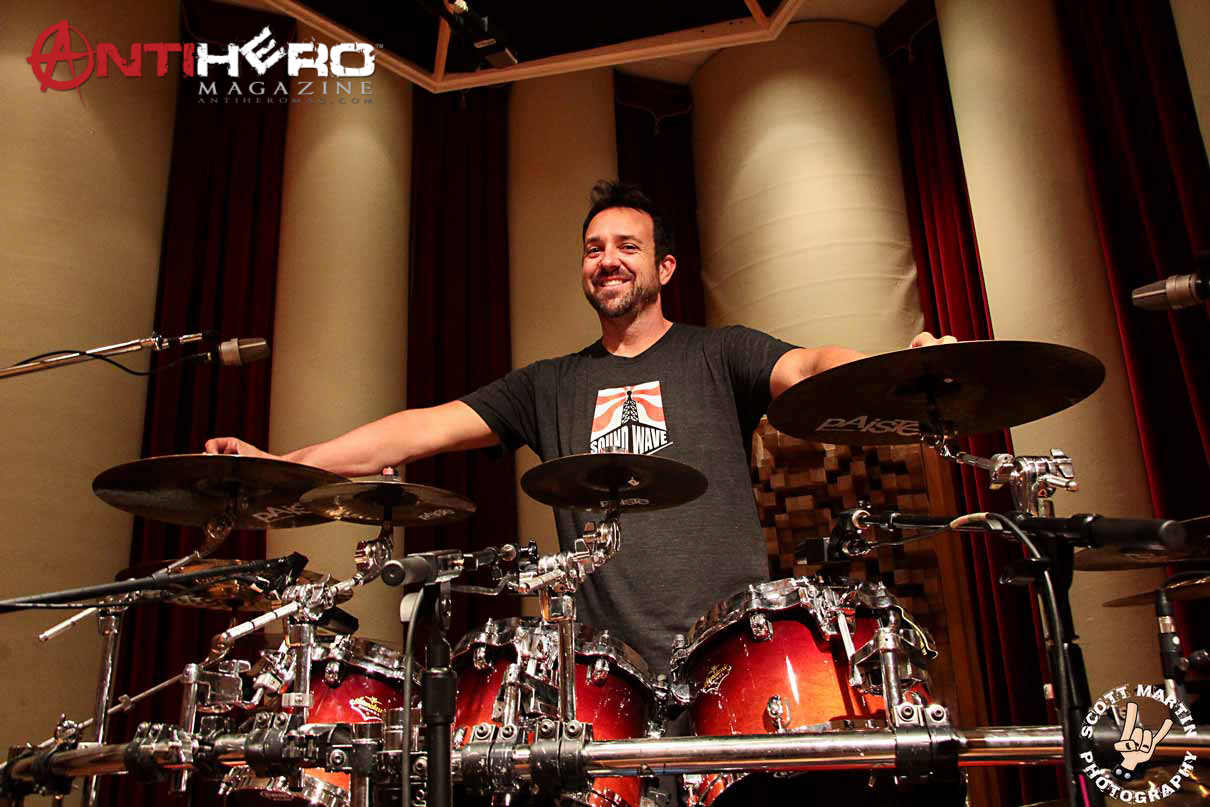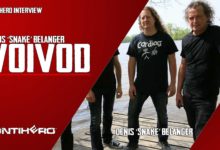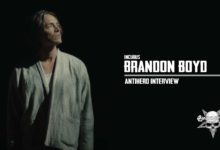Interview with David Pirner of SOUL ASYLUM
Interview by Mark Dean
[separator style=”line” /] Soul Asylum have recently released Change of Fortune which is the band’s eleventh studio album. Their career began with several indie releases on Minneapolis’ Twin/Tone that garnered them attention from a few major labels. The group signed with A&M Records in 1988 where they released two albums: Hang Time and And the Horse They Rode In On. In 1992 Soul Asylum was signed to Columbia Records and released its groundbreaking album, Grave Dancers Union, which included the Grammy Award winning “Runaway Train.” Soul Asylum followed up this success with Let Your Dim Light Shine in 1995, which climbed to #6 on the Billboard 200 and featured the #1 Modern Rock track “Misery.” After releasing Candy from a Stranger in 1998, the band members wanted to concentrate on writing and took a break from recording. The band reconvened in 2004 to begin work on their ninth full-length album, joined by a new drummer, Michael Bland. Sadly, shortly thereafter, bassist Karl Mueller was diagnosed with throat cancer and passed away after finishing his work on the new album. The Silver Lining was released in 2006 and was dedicated to Karl’s life and memory. The band took a long and unscheduled hiatus as they grieved and dealt with the loss of their friend and band-mate. In 2012 Soul Asylum released the aptly titled Delayed Reaction that was deemed “quick to embrace” by influential music blog Consequence of Sound.I was recently afforded the opportunity to catch up with Dave Pirner-singer/guitarist from Soul Asylum to have a chat.
[separator style=”line” /] 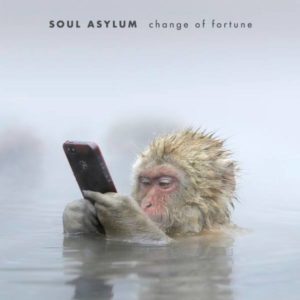
You’ve got a new album out? Is there any sort of message or theme going on with the cover? It’s a bit of an unusual cover.
Oh, Well I had seen a photograph in a magazine that was … I just thought it was a perfect album cover. It really kind of explains the times to me. I have gotten a little bit of … I just think it’s hilarious. I’ve walked into restaurants before, and even couples, and every single person in the restaurant was on their smart phone.
I understand exactly what you mean technology seems to be destroying basic human interaction.
The thing for me, I’m still talking to you on an old flip phone. I don’t have anything against smart phones. The story is that the monkey is at a zoo, and everybody’s taking a picture of the monkey, and he crawls up the side of the cage and he grabs somebody’s smart phone and jumps back into the water and actually was able to take a picture. Like the flash went off. Then he swam underwater with the camera. I saw it in a pretty big magazine, so I thought I had no chance of getting the photo to use for the album cover but I thought I’d give it a try anyway. The photographer is a wildlife photographer and he couldn’t have been happier to let me use the photo. He just said I’d have to give him some music for one of his nature documentaries. When you get your heart set on an image and then you find out you can’t use it, you’re kind of lost so I couldn’t have been more pleased that he gave me permission to use the photo.
You have chosen the Pledge music format for the album release. Is that a format that is personally new to you? Or alternatively something that you have creatively embraced previously?
Well it was a bit of an experiment for us. We hadn’t really tried anything like that before and I was very apprehensive. It felt like panhandling. Like trying to, I don’t know, like asking our fans for them to loan money. It turned out to be, in my opinion, it turned out to be a lot better than I thought it was going to be. Actually sort of delivered on the, sort of in my mind, the concept that we were going with.
When I talked to the people that ran Pledge at first I didn’t want to do it. Though when I had them on the phone they were, first there was a lot of people. I mean they were absolutely young kids that, I say kids, but I don’t know how old they were but … They clearly knew what they were talking about. They were very internet savvy and that’s something that Soul Asylum has always lacked.
I think that was better … A part of it was we’ve always been such a bunch of Luddites. I mean, such technophobes. We’ve had a hard time of making our way onto the internet, just as a tool. This seemed like an opportunity to have somebody sort of hold our hands and try to get us in there.
In the end it ends up being like some sort of personal kind of project. Sort of selling my paintings to people that were into the band, and going to people’s houses and playing a gig, and things like that. The thing that was the hardest was when people can come to the show before the show and hang out “with the band.” They come in the middle of sound checks and you couldn’t really hear anybody, and they’re kind of standing there staring at you, and you don’t really know what to say.
It’s cool. It can be a little bit awkward for both parties.
I just paid my producer, and we used the Pledge money to pay the producer. It was something that we tried and something that, more or less, worked. Back in the day we’d spend a million dollars making a record.
What about the song writing process for you personally? Do you find that it becomes easier over the years or it becomes harder to find inspiration when you’re coming to write lyrics?
Hmmm. That’s a pretty good question. I guess it’s fairly natural that when you’re eighteen there’s a lot of things you hadn’t really thought about and a lot of things that you are still trying to understand for the first time. I guess, in a way, there’s more to brainstorm about. I would fill notebooks up with absolute nonsense. I don’t just write anything anymore.
I’m a little more particular because sometimes I know what I’m looking for in a way that … I guess I’ve explored quite a few topics at this point. (laughs)
You don’t want to keep repeating yourself. To that effect, I have already written a song about religion. I already wrote a song about this. I already wrote a song about that. At the same time, I’m wiser now. I know what I’m doing, I think. I mean, a big part of the song writing process when I was quite a bit younger was just figuring out how to do it.
Yeah, life experiences impact and influence you in many ways.
People die, people are born, people are changing and things are changing around you. I’m kind of actually looking forward to finding really fucked up subject matter, you know? It’s like trying to write songs about not the usual stuff.
I’m trying to sort of stretch that out as much as I can. I can’t remember what, yesterday I was thinking about writing a song about something that was so absurd. I was like, “I’d never get away with that.” I wish I could remember what it was right now. It was like “No one’s ever written a song about that, well I’m going to do that.”
I read a quote where Jared Gertzen called you “one of the best singer/songwriters to come out of Minnesota since Prince.” I just wondered was Prince a musical inspiration to you?
That’s a pretty strange thing to think about that. I mean, I look to Bob Dylan as someone from Minnesota who was a huge inspiration to me. I think what I understand about Prince is … well yeah, of course, he’s an inspiration to me. He had a similar sort of method where he could kind of make demos and play all the instruments and hole up in basements. That’s all very, sort of, Minnesota to me.
I kind of do the same thing. Six or seven months out of the year where you just kind of can’t go outside. Being alone in your basement with your little four-track recorder and you start making music by yourself. That I identify with quite a bit. It was just that he was always very prolific and, you know, he was a Minneapolis person. So yeah, of course, he was always present. Last night I was thinking about this and I was like it was almost like the Beatles were.
That level of cult status.
It was so in my face all the time I was almost resistant to it. You know I felt like I never had any choice. It was always around and always on and always kind of in my face. I loved the guy, and I got to tell him to his face which I feel pretty good about. I kind of got over the … whatever that was coming up. It’s felt like we were, not competing but … yeah you know. He was definitely an inspiration. He worked hard.
Given that your last solo album, Faces & Names, was released quite some time ago, I just wondered if you had any plans for a follow up or does Soul Asylum fulfill all your creative musical needs?
The experience of making a solo record was a good experience. It was something that I needed to do, but I really like being in a band. I like the idea of being part of a band and sort of representing as an ensemble. It was kind of a lonely sort of feeling the solo project. I see a solo record as something that might be more out of necessity this time, whereas the first time it was something that I needed to do. I needed to break away from the usual, whatever was expected of the band. I’m going to continue to carry on with Soul Asylum until I can’t. Then I’ll make a solo record.
You appeared on a track, “The Whole World is Watching,” by Within Temptation. Are shifting musical genres and trends something that you keep a keen eye on? Because Within Temptation are poles apart musically from what you do in Soul Asylum.
Well, not really. I got the call and I was not familiar with the band. Somebody said, “Oh they sound kind of like Evanescence” They said, “Oh we all get that analogy.”
My interpretation of what rock and roll is, is pretty broad. So to that effect, I just thought, cool, you know? This just sounds great and fun. They’re asking me to be on their record and I was flattered and it was just fun. I cut the track here in New Orleans where I am now. That’s all become very streamlined and doable. I’ve got a little studio in my backyard. I can put my vocal on and just send it back to them over the internet. I flew out there to do the video and they couldn’t have been cooler. That was a really fun experience and I’m really open to stuff like that. I love working with other people in just about any capacity really.
Taking you back when you wrote “Runaway Train,” did you have a special or different feeling that it would prove the band’s breakthrough hit single? After you wrote it. Did you say to yourself, this is going to do it for us?
No. I had no fucking idea. I was really benign to the whole … whatever it was that I was supposed to be doing. I think there was probably some sort of a mechanism in my brain that was, and still is, resistant to even acknowledging that some sort of song that is being demanded of me. I can’t really write for a purpose like that. As far as just like hey I’m going to sit down and write something that everybody’s going to like. Or I’m going to sit down and try to write something that’s going to make money. Writing like that is impossible for me. I didn’t see it as any different than any of the other songs that I had written at the time.
I didn’t really notice it until other people started noticing it. That was strange. I mean that was different. I was trying to find a new manager and I said, “Oh here this is a new record that we just made.” He made it through about 37 seconds of “Runaway Train” and he went, “Okay, this is it. I want to manage this band.” That was the first time I went, “Oh, this track seems to stand out to people.”
Given that Soul Asylum now have been around 33 years, how can you explain the enduring popularity of the band?
(laughing) I’m struggling with the popularity part. I think it’s the music. I like to think so, anyways. I like to think that the work that’s gone into it is worth something that’s enduring. Endearing, enduring.
We’ve always stretched the live show quite a bit. Just having Michael Bland in the band is worth the price of admission.
In my mind, I like to think it’s because we are transformative with whatever it is that makes for good rock and roll that is … I’m going for “timeless” here.
You are soon embarking on some tour dates with The English Beat. That seems to me an unusual musical pairing. Is it a band that you are familiar with or is it somebody else that picks the tour supports?
We spend a lot of time brainstorming and trying to figure out what a good band to go on tour with is. The last few summers … Last summer we went on tour with the Meat Puppets.
They are one of my very favourite bands. It was really, really fun. It was a great relationship. We are old friends and we used to play gigs together way back in the day. The summer before that we toured with Spacehog and Eve 6 and Everclear. The problems, for me, is that you try to … You pigeon-hole yourself even more by being part of some sort of a 90’s review or something. I don’t know.
The Meat Puppets thing was our element. We were just in these places that we’ve been in forever. Really fighting it out on the road kind of thing which was really a comfortable place for me.
It was really cool. It does seem a little odd … to mix it up. The couple times, we did a gig with the English Beat in Washington, D.C. and it seemed to work.
I’ve seen them play a couple times and for whatever it’s worth, the singer came backstage in Washington, D.C. and immediately just introduced himself and I immediately liked him. He is a super-nice guy and that really goes a long way.
There’s certainly people that you don’t play gigs with. They have attitudes one way or the other. It reminds me of when we played Brazil with INXS. I mean, those guys came back right away and introduced themselves and were very, very fine chaps, if you will. I just liked them.
I said sure why not. They seem like really nice guys let’s give it a try.
Obviously a personal connection is as important as connecting on a musical level.
It was amongst a lot of other considerations and it just kind of came together. I hope it works. I’m a little nervous about it. They certainly seem like a fun band to be around. That’s a big part of it.
Returning to the new album, I just wondered if you’d any plans to tour maybe in Europe, maybe the UK?
We are trying so hard to get over there. We don’t have anything on the books right now but we talk about it all the time. We’re just trying to figure it out. I’m trying to get something with Spacehog over there. Hopefully as soon as possible. I really miss being over there. It’s been awhile.
Okay, that’s great. That wraps it up for me. Thank you very much for talking to me. I’m glad we finally got to do this.
Thank you very much man. Have a good one.
[separator style=”line” /] Soul Asylum is:
David Pirner on guitar and vocals
Michael Bland on drums
Winston Roye on bass
Justin Sharbono on guitar
https://www.facebook.com/SoulAsylum
https://www.soulasylum.com
[separator style=”line” /]

